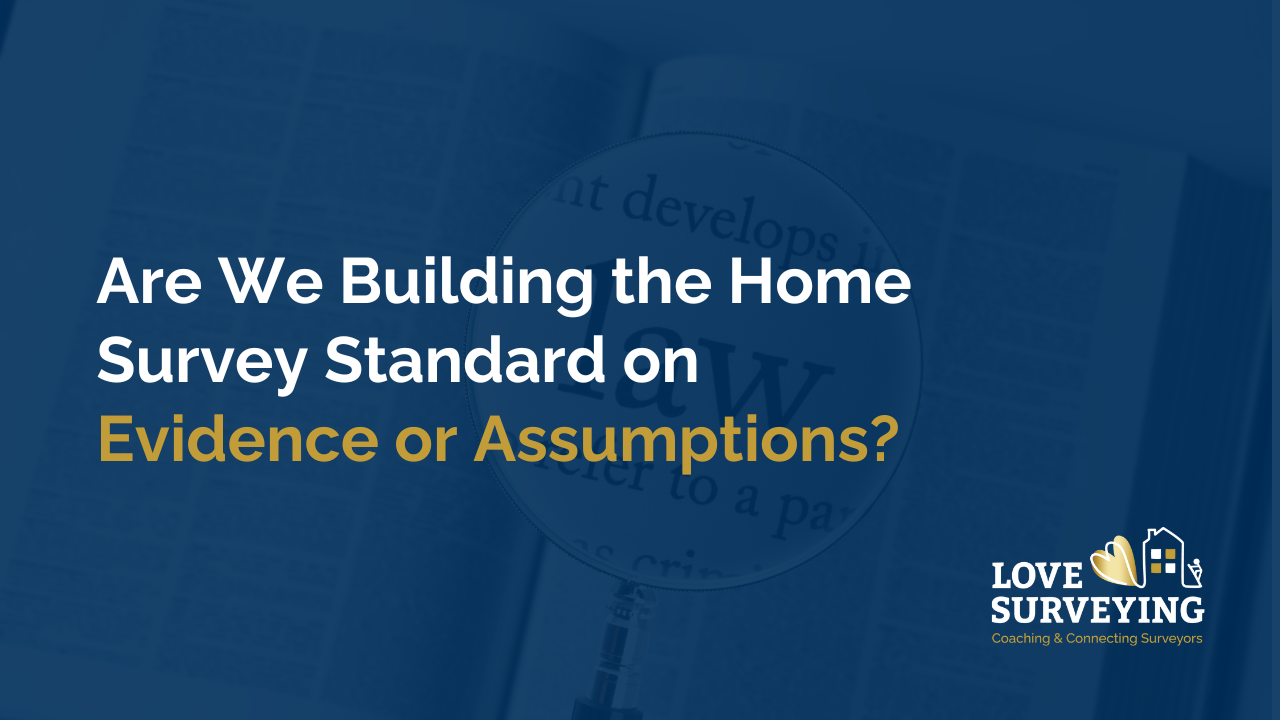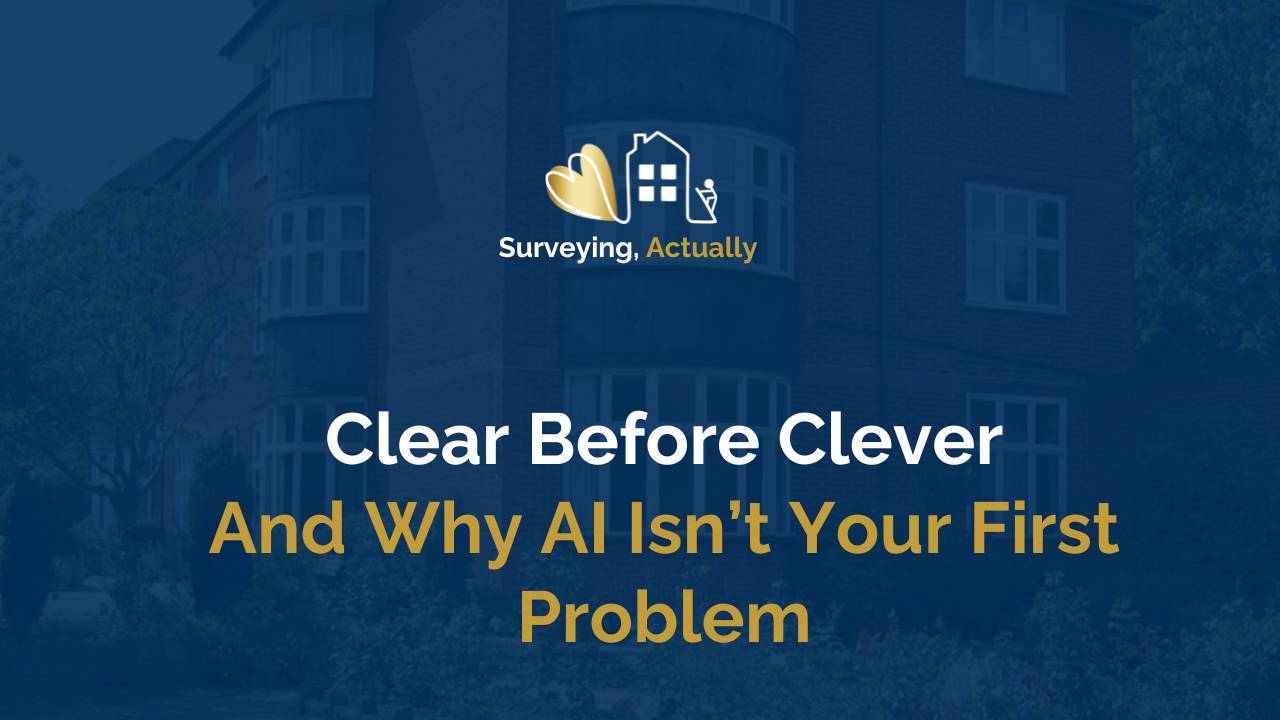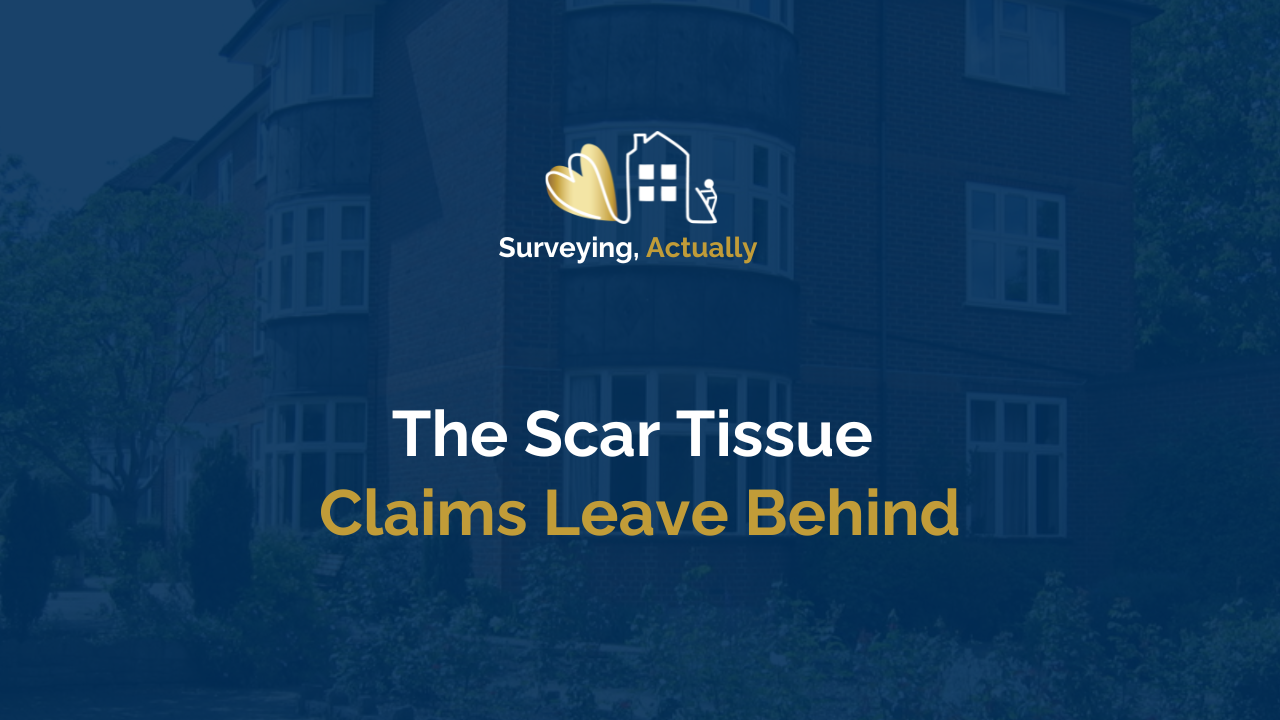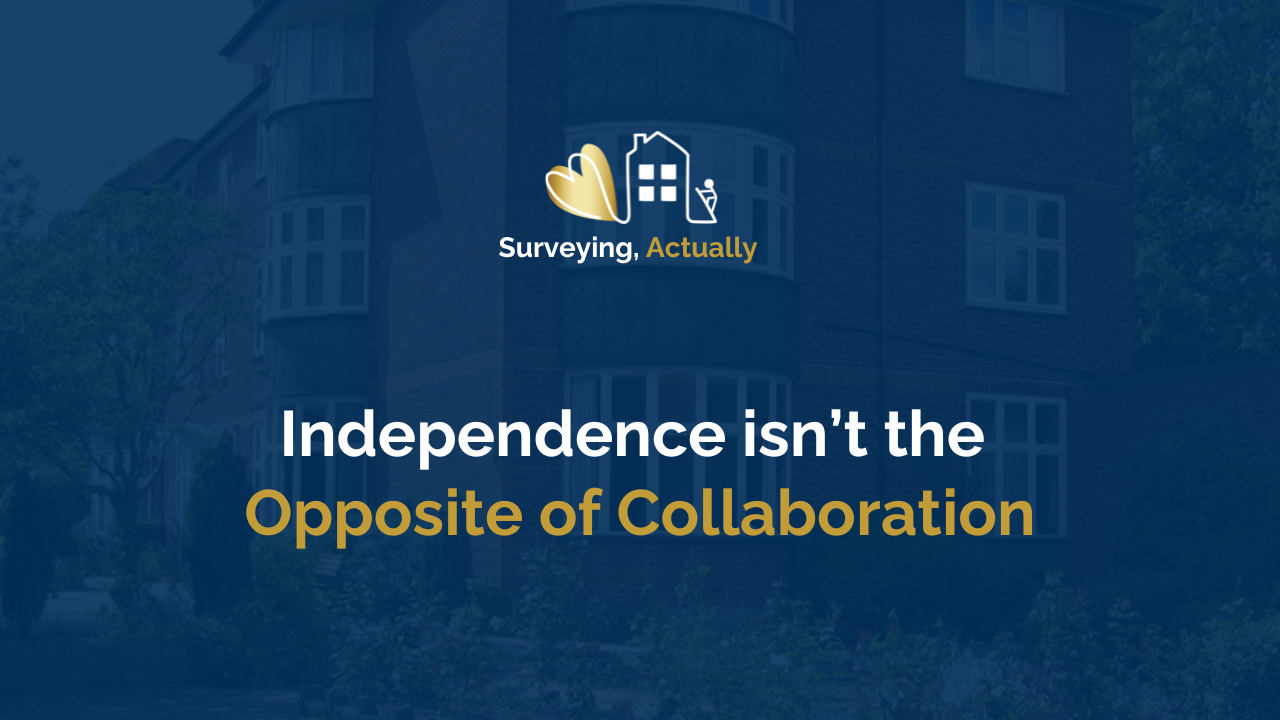Are We Building the Home Survey Standard on Evidence or Assumptions?
Aug 25, 2025
The draft Home Survey Standard consultation is out. On paper, that sounds like progress: setting clearer rules, reducing inconsistency, and giving both surveyors and consumers a shared framework.
But as I’ve read through the proposals and listened to conversations in the sector, one thought keeps returning to me: are we building this Home Survey Standard on evidence, or assumptions?
Because when it comes to home surveys, assumptions are risky. They lead to misunderstandings, complaints, and ultimately, a lack of trust. And trust is the very thing our profession cannot afford to lose.
Why Consumers Need Clarity in Home Surveys
If you ask the average homebuyer what they think of surveys, you’ll rarely hear enthusiasm. Too many describe them as “expensive but not very useful” or “full of caveats.” That’s not because surveyors don’t care or try. Most of us go above and beyond to protect our clients.
The problem is this: the way reports are written and the way standards are framed often don’t line up with what consumers actually need to make decisions. No buyer has ever told me they want a 50-page report full of disclaimers. What they want is confidence, plain and simple. A clear, practical understanding of the risks in front of them and the action they should take.
If the new RICS Home Survey Standard is to succeed, it has to be rooted in real consumer insight and testing. Otherwise, we’ll repeat the same cycle: surveyors following the rules, clients feeling let down, and complaints landing on desks months later.
Surveyors Are Tired of Caveats and Confusion
Surveyors don’t set out to confuse people. But too often, we’re left with little choice. When a standard doesn’t make clear what is expected, or when the industry hasn’t agreed on where responsibility sits, we protect ourselves with caveats.
I know how tempting it is. I’ve written enough of them myself. But we all know caveats aren’t the solution.
Take Japanese knotweed. A clause excluding liability may look neat in terms of engagement, but it won’t survive the scrutiny of the Consumer Rights Act 2015. Knotweed isn’t visible all year round - we all know that - but the law still expects us to exercise reasonable care, be clear about limitations, and direct clients to specialists if certainty is required.
Or think about services. The consultation says that if no certificates are available, the surveyor should call for a report. But isn’t it time we asked the bigger question? Why aren’t services tested and certified upfront, before marketing? Tenants already expect it in the rental sector. Why should buyers be left in the dark, while surveyors are blamed for highlighting the gap?
These aren’t just technicalities. They go to the heart of how surveyors work, and how clients experience us.
Case Law Reminds Us Why Clarity Matters
The case of Fryer v Bunney [1982] ORC still echoes in surveying practice today. The surveyor was found negligent after failing to discover considerable damp at 5 Cherry Way, Daw’s Hill, Essex.
Although his survey report stated that a Protimeter had been used, there were no records of damp meter readings for parts of the house. Expert witnesses - including a plumber, a chartered engineer, and two chartered surveyors - demonstrated that if sufficiently extensive readings had been taken, the damp would have been revealed.
Mr Justice Newey was sympathetic, making clear that this was not a case of deliberate corner-cutting. Instead, he described it as the danger of routine: a man doing a standard job too frequently, and not applying the necessary thoroughness on that day.
The lesson was, and still is, unmistakable: surveyors must not only use the right tools, but apply them methodically and record their results clearly. Good intentions are no defence if the evidence is missing and the client suffers loss. It’s a sharp reminder that vague reporting is not only frustrating for clients, but it’s also a legal risk, too. The lesson is that the Home Survey Standard must encourage clarity, evidence, and consistency, not caveats and ambiguity.
What Surveyor Conversations Reveal About the Draft Standard
One of the positives in this process is the sheer number of conversations happening across the profession. Reading back transcripts of these discussions, I’ve noticed a few encouraging themes:
-
Surveyors are engaged. Far from being passive, they’re asking tough questions and sharing insights.
-
Different perspectives are welcome. Not everyone agrees on what “check” means, or where responsibility should sit — and that disagreement highlights the gaps we need to fix.
-
Accessibility is on the table. Even if I’m not a fan of how it’s currently being referred to, it matters that accessibility has been recognised as an issue. Standards must work for neurodivergent surveyors and consumers too.
-
A reality check for theory. When surveyors stumble over definitions, it proves why consumer testing and field trials are essential before any standard is finalised.
These conversations may feel messy at times, but they are evidence of a profession that cares - and that’s something worth celebrating.
Turning Questions into Action: 8 Essential Questions for Clients
If there’s one thing I’ve learned from years of working with surveyors, it’s that the right questions make all the difference. Asking clear, consistent questions upfront reduces complaints, builds trust, and helps clients actually understand your report.
That’s why I created a free resource: 8 Essential Questions to Ask Every Client Before a Home Survey. It’s designed to help surveyors strengthen client engagement from the very first conversation, so expectations are managed and value is clear from the start.
It’s a simple step, but sometimes simple is what makes the biggest impact.
What’s at Stake if the Home Survey Standard Isn’t Tested
Without evidence and proper testing, consumers lose trust. They continue to see surveys as poor value. Surveyors feel exposed. Complaints rise, even when we’ve followed the “rules.” And the profession risks stagnation. We look defensive, rather than consumer-focused.
And all of this comes at a time when the property market needs more transparency, not less.
Key Questions RICS Must Answer in the Consultation
So, as this consultation runs its course, I think we need some straight answers:
- How has consumer feedback shaped the draft?
- What testing has been done to check whether the standard works in practice?
- How will consistency between surveyors actually be measured?
- What safeguards are in place to make sure reports are clear, usable, and fair?
Without answers, we’re left with another set of rules that may look good on paper, but don’t deliver for either surveyors or clients.
Why the Home Survey Standard Matters
The Home Survey Standard consultation isn’t just another technical exercise. It shapes how buyers see the value of our profession, how surveyors manage risk, and ultimately, how much trust consumers place in surveys.
If the standard is built on assumptions, we risk repeating the same mistakes: reports full of caveats, clients who feel let down, and surveyors who face complaints despite doing their best.
But if it is built on evidence, consumer insight, and proper testing, it can reset the relationship between surveyors and the public. It can show that surveys are not just a hurdle in the home-buying process, but a source of real clarity and protection.
That’s why this consultation matters. Because the way we define standards today will shape the reputation of surveying tomorrow, and none of us can afford to get that wrong.
A Personal Note
These thoughts come from my experience of over 20 years in surveying and supporting both consumers and surveyors. They’re simply my perspective - shared to open up discussion and encourage more voices to feed into the consultation. If you have a view, please take a moment to respond - your input really does make a difference. This is the link to the consultation.
Enjoyed this article?
- You might also like:
- Find it useful? Please share it with friends or colleagues who might benefit.
Want to support my work? Leave me a quick Google Review or Buy Me a Coffee ☕. Every little helps as a small business.





